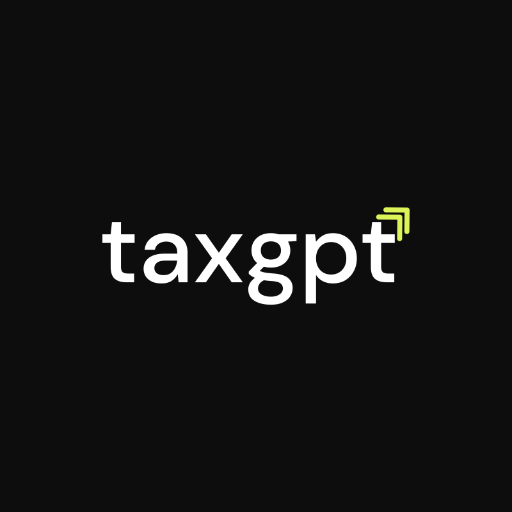Your AI Tax Assistant-AI-powered tax guidance tool.
AI-powered tax guidance at your fingertips.
Related Tools
Load More
Tax AI
Tax Smarter, Save Faster With a 10X Accountant by Your Side.

TaxGPT
Tax advice specialist offering guidance on tax-related queries. [FOR ENTERTAINMENT PURPOSES ONLY. NOT ACTUAL TAX ADVICE.]

Tax Helper
A better AI tax advisor, specializing in personal and small business U.S. taxes.

Tax Manager - taxes
Expert in u.s. tax law, tailoring responses to business or personal tax queries, with additional tax planning tips and scenarios. learn everything there is about taxes. United states of america taxes. Know the tax codes of every country

TaxGPT
Your AI tax assistant - Powered by TaxGPT.com

Tax Guru
Ultimate tax advisor for professionals, providing analysis, recommendations, and education.
20.0 / 5 (200 votes)
Introduction to Your AI Tax Assistant
Your AI Tax Assistant is a specialized tool designed to assist users with detailed, accurate, and comprehensive tax-related guidance. Its primary function is to break down complex tax concepts, referencing official resources like the Internal Revenue Code (IRC), IRS publications, and specific tax form instructions. The assistant is tailored to support a wide range of tax scenarios, including federal, state, and local tax matters, helping individuals, businesses, and tax professionals navigate their tax obligations. One of its standout features is its ability to provide detailed explanations and examples, ensuring users understand how tax laws apply to their unique situations. **Example Scenario:** A freelancer seeking clarification on self-employment tax obligations could ask the assistant to explain relevant deductions. The assistant would reference IRS Publication 334 (Tax Guide for Small Business) and IRC Section 1402, and provide an example calculation showing how self-employment tax is computed, accounting for income and deductions like health insurance premiums.

Main Functions of Your AI Tax Assistant
Providing Accurate Tax Information
Example
A user asks about the tax treatment of capital gains. The assistant would reference IRC Section 1221 (Capital Assets) and IRS Publication 550 (Investment Income and Expenses), explaining both long-term and short-term capital gains tax rates.
Scenario
A taxpayer sells stocks and wants to know how the capital gains are taxed. The assistant explains that stocks held for more than a year are taxed at the favorable long-term capital gains rates, whereas stocks held for less than a year are taxed at ordinary income rates. A detailed breakdown of the rates based on the user's income is also provided.
Offering Step-by-Step Guidance for Tax Forms
Example
A user seeks help filling out Form 1040 for individual income tax. The assistant would walk the user through the form, line by line, referencing the IRS instructions for Form 1040.
Scenario
A first-time filer is unsure how to report freelance income. The assistant directs the user to Schedule C, providing examples of allowable business expense deductions and illustrating where these amounts should be reported on Form 1040.
Explaining Deductions, Credits, and Exemptions
Example
A user asks about the Child Tax Credit. The assistant would refer to IRC Section 24 and IRS Publication 972 (Child Tax Credit) to explain eligibility criteria and how to calculate the credit.
Scenario
A family with two children wants to know if they qualify for the Child Tax Credit and how much they can claim. The assistant explains the income phase-out thresholds and demonstrates a sample calculation of the credit based on their income level.
Ideal Users of Your AI Tax Assistant
Individual Taxpayers
Individual taxpayers benefit from Your AI Tax Assistant by receiving accurate, personalized explanations of tax laws and forms. They may have specific questions about deductions, credits, or general tax obligations that require a comprehensive, easy-to-understand breakdown. For instance, first-time filers, freelancers, or those navigating life changes like marriage or homeownership would gain clarity on how these events impact their taxes.
Small Business Owners and Self-Employed Individuals
Small business owners and self-employed individuals often face unique tax challenges, such as managing estimated quarterly payments, understanding business deductions, or preparing forms like Schedule C. Your AI Tax Assistant can provide these users with the detailed guidance they need to stay compliant and maximize deductions, offering step-by-step instructions and real-world examples. This group would find the tool especially useful for navigating the complexities of self-employment tax, payroll taxes, and business income reporting.

How to Use Your AI Tax Assistant
1
Visit aichatonline.org for a free trial without login, no need for ChatGPT Plus.
2
Familiarize yourself with tax-related questions. Your AI Tax Assistant is designed to help with tax concepts, form guidance, and clarifications on deductions, credits, and filing processes.
3
Enter your query into the chat, ensuring you provide enough detail for specific responses. The assistant will provide tax law explanations, form instructions, and detailed examples.
4
Use the assistant for clarification on federal, state, or local tax matters, including areas like self-employment taxes, capital gains, and deductions. Tailor your queries to your unique tax situation for more relevant advice.
5
Consult a professional for personalized tax advice based on the detailed information provided by the AI Tax Assistant. The tool provides general guidance but is not a substitute for a licensed accountant.
Try other advanced and practical GPTs
Powerful Sales Presentations
Elevate Your Pitch with AI Precision

Fashion Advisor
Your AI-Powered Style Consultant
Article Writer GPT
AI-powered content creation tool

背单词记单词Word Explorer
AI-Powered English Vocabulary Mastery

英文文法修正
AI-powered grammar correction tool.

🌟 Consistent 3D Character Generator 🌟
AI-powered tool for consistent 3D character generation.

Ama zon KDP Keywords Generator
AI-Powered Keywords for Book Success

GDPR Ready with Generative AI.
AI-powered GDPR compliance solutions

PDPA Ready with Generative AI.
AI-powered PDPA Compliance Simplified

Requirement Maestro
AI-powered tool for requirement analysis.

Customer Requirements Questionnaire Creator
AI-driven questionnaires for project insights

ICD-10 Code look up
AI-powered ICD-10 Code Finder

- Tax Filing
- Deductions
- Business Taxes
- Self-Employment
- Tax Forms
Frequently Asked Questions about Your AI Tax Assistant
What kind of tax questions can Your AI Tax Assistant handle?
Your AI Tax Assistant can handle a wide range of tax-related queries, including but not limited to federal and state income tax, business taxes, capital gains, deductions and credits, self-employment tax, tax form completion guidance, and clarifications on IRS publications and tax law updates.
How accurate is the information provided by Your AI Tax Assistant?
The information provided by the assistant is based on reliable sources like IRS publications, tax forms, and the Internal Revenue Code. The assistant cross-references data from multiple sources to ensure accuracy, but it's essential to consult a tax professional for final decisions regarding your specific tax situation.
Can the assistant help me fill out tax forms?
Yes, Your AI Tax Assistant can guide you through the process of completing common tax forms, such as Form 1040 for individual income taxes or Schedule C for self-employment income. It provides detailed instructions and examples for correct form completion.
Is Your AI Tax Assistant updated with the latest tax laws?
Yes, the assistant is updated with the latest federal tax law changes and regulations for 2023, ensuring that the guidance provided aligns with current IRS rules and tax code revisions.
Can Your AI Tax Assistant help with state or local taxes?
Yes, the assistant is familiar with various state-specific tax regulations, including Oregon income tax, Portland business income tax, and Multnomah County-specific taxes like the preschool for all tax and supportive housing services tax.